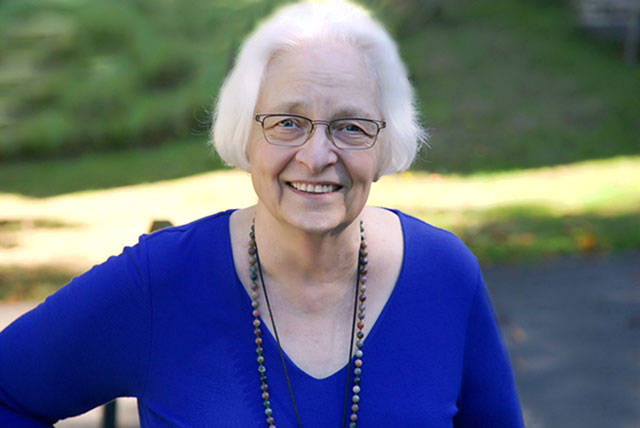I grew up in Beirut, Lebanon, a place that today is a city of refugees just as it was in the 1950s of my childhood. My family was American and living abroad by choice when my father joined an oil company to continue his career in radio engineering. It was one that had originally brought him to the Middle East during World War II, when he was part of the OWI/OSS project that built and maintained radio communications among the Allies.
World War II had generated millions of refugees, and our first housekeeper, Bertha, had quite the harrowing story. Bertha must have been in her early 60s at the time she worked for our family. I would sit at the kitchen table munching after-school cookies while she prepared dinner, and she would tell me stories from her childhood in Germany. She had been born into an affluent, cultured family, and hers had been a life of operas and concerts, beautiful parks and wonderful chocolates. But there were other stories that would cause her to weep and explained why she reacted so strongly to sudden loud noises. Her family had hidden Jews from the Nazis, a courageous but extraordinarily dangerous undertaking. Somehow the authorities learned of this clandestine activity and raided her family’s house while Bertha was not home. Everyone else was arrested, imprisoned and then executed; Bertha fled the country. After a harrowing journey, she managed to get to neutral Turkey, out of reach of the Nazis, and from there she continued on to Beirut to become one of the innumerable DPs (displaced persons) who sought refuge in Lebanon during World War II. When the Nazis were defeated, she remained in Beirut rather than return to her former home in what was by then Communist East Germany.
Bertha’s stories, her longing for places lost and her deep well of sadness were my introduction to the personal tragedy of the refugee experience. Bertha and all the refugees I met in the ensuing years were truly displaced. I was to hear many stories of the life left behind, stories of the terrifying flight from danger and stories with varying degrees of determination to make a new life in a place that would never be home but would offer opportunity to the next generation. My series of piano teachers included an Armenian who had fled the Turkish genocide, a White Russian locked out of her country and a Palestinian who had photos of a lovely house that she would never see again. My school, the American Community School, had its share of refugee teachers; my high school math teacher and the school nurse had survived the Armenian genocide, my fourth-grade teacher was a Palestinian refugee. One of my friends was half-Russian; her mother and grandparents were part of the wave of aristocrats who had fled across Siberia to the relative safety of China during the Russian Revolution. I met many people who were waiting for the visa that would allow them to immigrate to the promised lands of safety and prosperity, mainly Canada and the United States.
Horseback riding with my best friends on the sandy stretches south of Beirut was my favorite activity. To get to the beach from the stable, we rode through a large Palestinian refugee camp, and I suspect that we horsewomen were among very few outsiders who knew the shortcut paths through that sprawling mass of humanity and flapping laundry. The site had originally been a tent city set up by the United Nations in 1947, when thousands of Palestinians fled to neighboring countries from the nascent Israel. To the children of the camp, we were a novelty. To the women of the camp, who wore ankle-length skirts and covered every bit of their hair with scarves, we girls in jodhpurs, hair free as the breeze (we did not wear helmets), riding astride our spirited beasts must have seemed like creatures from another planet.
My childhood experience of living in another country, knowing people of many cultures and hearing many life stories made me realize that people are just people. We all have hopes and dreams, but some of us are sidetracked, even thwarted, from achieving those hopes and dreams by circumstance. We in the USA are now in a position to help those seeking safety, shelter and a better life. Would we not want help and compassion if our roles were reversed?
— Kathy Olsen is a member of the Vashon Resettlement Committee.



